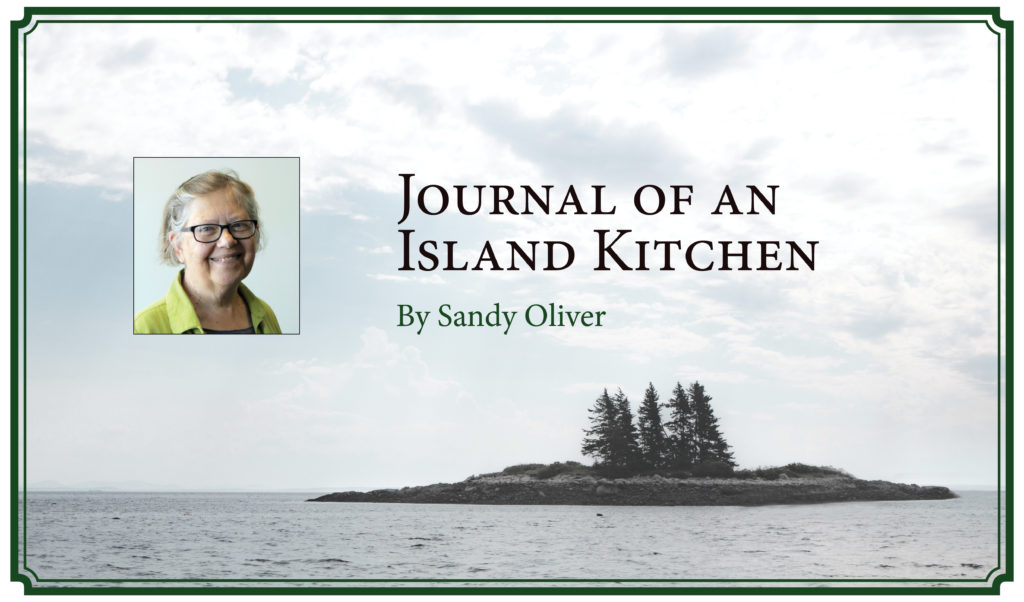By Sandy Oliver
Some people can see the upside of almost any bad situation; they’d keep a good attitude going even in a nuclear holocaust. I am not one of those. I can find a cloud around almost any silver lining you have. Still, when something good happens, when a silver lining comes along, we really ought to celebrate it, even as we note the cloud.
Good news. A couple years ago, I bewailed the state of the most commonly found kitchen matches, those so-called Green Lights manufactured by Diamond made with wood from “responsibly managed forests” which broke easily, refused to ignite on the first, or fifth, try, and had so little fuel that a sudden gesture could extinguish them before you held them to the kindling or candle. Friends gave me old boxes of wonderful, unused old matches and as I sadly worked through them I realized that I had to buy new matches, whether I liked it or not.
However, the new box of Diamond Green Lights revealed a transformed match. They do not break when struck, they light on the first try, and a mere wave or two of the wrist doesn’t extinguish them; I now actually have to blow them out. Mirabile dictu,as the poet says. Did many fellow sufferers moan aloud about the sorry state of the matches? Did the cost-saving measures that resulted in the miserable matches give way to common sense? Was the C.E.O. who oversaw the match cost-reduction policy sent into outer darkness? I surely hope so.
Bad news. Recently I saw an advertisement for sour cream in squeezable plastic tubes. What in heavens is that about? First off, we don’t need anymore terrible plastic things that cannot be recycled, and these tubes will go to the dump with too much sour cream left inside to qualify the plastic for reuse. Second, who needs to add sour cream to their diet in the quantities that little squeezes can supply? Thirdly, when I use sour cream, I usually need it by measurable amounts, scooped from a container and plopped into a measuring cup. Squeezable sour cream doesn’t qualify as a high point in human progress.
Good news. When I was growing up, five-dozen years ago plus change, the only lettuce I ever ate was iceberg. I don’t think anything else was available in New England groceries, and mom served it with mayonnaise.
Now look at all the lettuces we can acquire, both baby and adult sized, in the produce section. Reds, greens, curly, Romaine, along with spinach, baby kales, and arugula. Ahhh. And the seed catalogues I have been immersing myself in have page after page of the most glorious lettuces we can grow for ourselves. We live in lettuce heaven, you and I.
Bad news: Look at all the clear plastic clam shells boxes those lettuce mixes come in. How in heaven’s name can our poor Earth cope with all those damn plastic boxes. Open one up, dump out the contents, rinse, add dressing, and toss the box. Day after day. Unsustainable.
Bad news: E. coli in Romaine lettuce. Charming, a free serving of E. coli with the purchase of what you need for Caesar salad. And no one knows how it was added or where or when and so we recalled and destroyed goodness-knows-how-many tons of it.
Good news: You can buy your Romaine locally, if you are willing to wait for it to be in season. Your safest food is produced in relatively small amounts, close to home, by people you know.
Good news: Look at all those lovely, interesting little crackers we can buy now. I love crackers like fig and olive, multi-grains of all sorts, rice with or without sesame, flax seed, or gorgonzola. Yum. When I was a kid, three score and a dozen years ago, my mom bought Saltines, Ritz, and a beloved Swedish rye crisp bread which was made with a cupful of sawdust and was delicious spread with peanut butter. But that was it.
Bad news: Graham crackers are officially smaller now. They don’t look smaller, and they still come in a box that feels and looks like it always did. However, where it used to take one package of the three inside the box crushed to make a graham cracker crust according to the Joy of Cookingrecipe, it now takes a package plus two crackers to come up with the same amount. Sneaky buggers, those manufacturers.
Sandy Oliver is a food historian who cooks, gardens, and writes on Islesboro.





